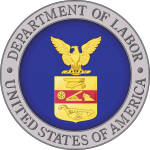The Department of Labor (DOL) has issued a Notice of Proposed Rulemaking (NPRM) that loosens the standards for drug testing for unemployment compensation (UC).
 In 2017, Congress passed, and the President signed, a resolution of disapproval revoking a 2016 rule that imposed a one-size-fits-all approach on states with regard to identifying occupations for regular drug testing.
In 2017, Congress passed, and the President signed, a resolution of disapproval revoking a 2016 rule that imposed a one-size-fits-all approach on states with regard to identifying occupations for regular drug testing.
The Middle Class Tax Relief and Job Creation Act of 2012 amended the Social Security Act to allow states to conduct drug testing for UC applicants for whom suitable work is available only in an occupation that regularly conducts drug testing. The state may then choose to offer or deny UC benefits to an applicant who tests positive for drug use under these circumstances.
Because this statute was not repealed or amended by the resolution of disapproval, the statute continues to require the department to issue regulations. Accordingly, the NPRM announced Nov. 2 represents a substantially different and more flexible approach to statutory requirements than the 2016 rule.
This NPRM proposes that the federal standard recognize states’ diverse situations by permitting – but not requiring – them to test UC applicants for whom suitable work is only available in an occupation where the state has a factual basis to determine that employers conduct drug testing as a standard eligibility requirement for obtaining or maintaining employment in the identified occupation.
